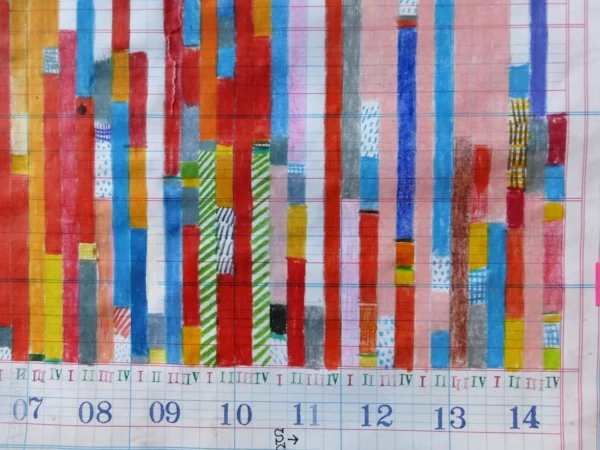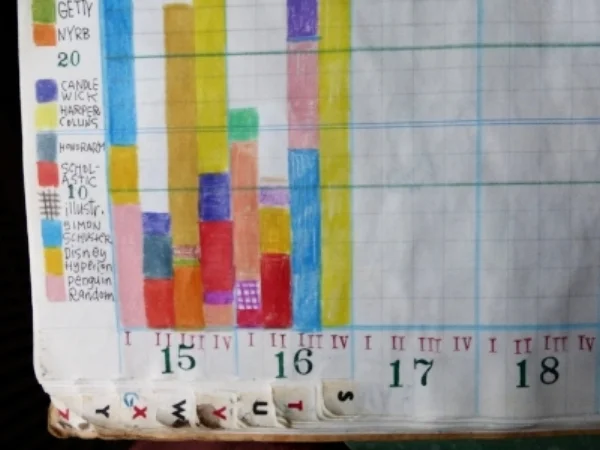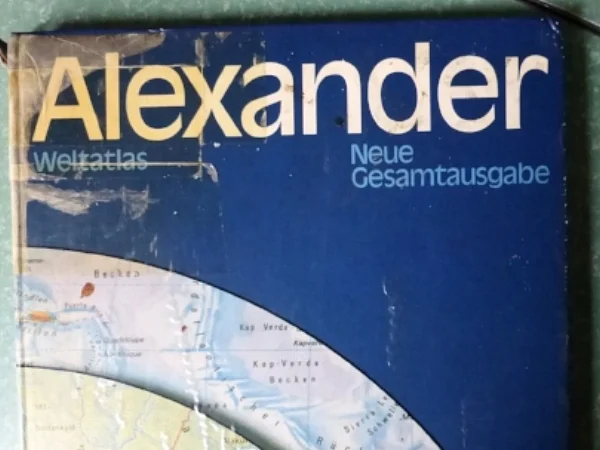Accountable
Just before publishing Charlie Parker Played Be Bop, in the early 1990s, Chris found an old accountant’s ledger book in a dumpster.
It was a beautiful object—more than an inch thick, rectangular, with a burnt-umber cloth covering, leather-bound corners and yellowed pages filled with slim blue and red lines.
It held decades of writing and columns of numbers—a man’s life’s work— and Chris decided to, in a sense, continue the work by filling in the empty pages with his own accounts.
Making art of any kind is “flittery,” Chris said when I asked him about the ledger in anticipation of writing this post. Recording how he uses his time, the books he completes and sells, his income and expenses, keeps him grounded.
I know what he means but I don’t do it the same continuous way. My accounting happens in spurts of going through old files or sorting papers. It’s a different approach but the result is the same. It’s how I pause and take stock.
In any kind of business, it can be helpful to evaluate your time and money, to see how you’re spending it, and whether or not you want to spend it that way so you’re not drifting. It can be reassuring if it matches what you want, and help you adjust if it doesn’t reflect the direction you want to go.
The original ledger book, sadly, was forgotten in the park long ago. Since then, Chris has used smaller ledgers that are easier to carry in a bag.
The inspiration for how he keeps his accounts comes from a beloved and beautiful book we have at home called the Alexander Weltatlas.
Last night I turned the pages of the book and could see the obvious correlation between Chris’ ledgers and that old world atlas. It reminded me of the importance of inspiration and how keeping account is part of how we spend our time.
Life often feels flitterish and fleeting to me, too—but when I take account of where I’ve been, and what I’ve done, it helps me pause, recalibrate, move on.



